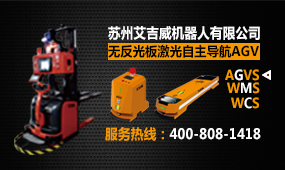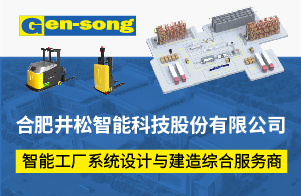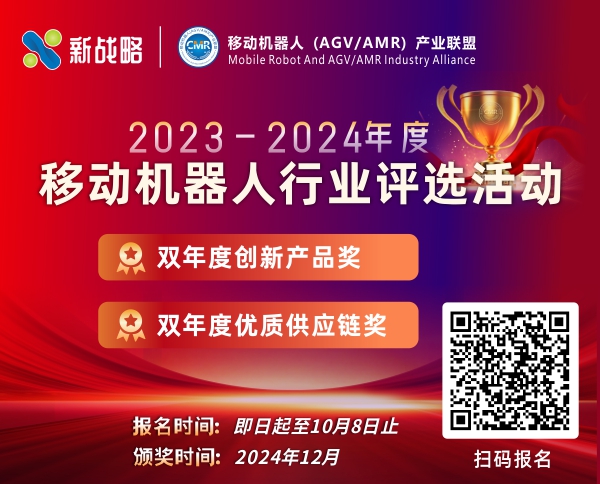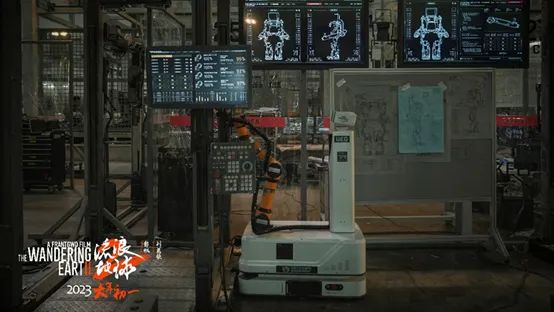之一。但這種擔(dān)心是錯(cuò)誤的。我們不太可能看到大規(guī)模失業(yè);相反,工人們將轉(zhuǎn)向新的經(jīng)濟(jì)部門—盡管有轉(zhuǎn)型的陣痛—就像一直如此。真正的風(fēng)險(xiǎn)是,機(jī)器人會(huì)把我們太多的人推入不那么具有社會(huì)生產(chǎn)力的工作—尤其是那些在營(yíng)銷方面的工作。
?? The fear that robots, or more generally smart software, will put us all out of work is one of dominant economic memes of our time. But that fear is misplaced. We’re unlikely to see mass unemployment; rather, workers will shift into new economic sectors — albeit with transition pains — as has always been the case. The real risk is that the robots will push too many of us into less socially productive jobs — especially those in marketing.
讓我們來(lái)考慮一下ATM機(jī)。與許多人所認(rèn)為的相反,1990年代自動(dòng)取款機(jī)的廣泛采用并未大大減少對(duì)銀行計(jì)票員的需求。自動(dòng)取款機(jī)使銀行分行更容易操作,并使銀行能夠雇傭更多的員工,包括計(jì)票員。
?? Let’s consider the ATM. Contrary to what many people think, the widespread adoption of automated teller machines in the 1990s didn’t significantly diminish the demand for bank tellers. ATMs made bank branches easier and cheaper to operate, and that led banks to hire more staff, including tellers.
這些計(jì)票員在計(jì)算現(xiàn)金和處理存款方面的作用比以前要小,它們是怎么做的呢?經(jīng)濟(jì)師James Bessen解釋說(shuō):“他們?cè)谂c銀行客戶打交道方面,他們的市場(chǎng)能力和人際交往能力變得更加重要。”所以轉(zhuǎn)型—ATM機(jī)確實(shí)是有效地將銀行出納機(jī)的工作變成了更多的一個(gè)營(yíng)銷人。他們是銀行所謂的客戶關(guān)系團(tuán)隊(duì)的一部分。”
?? These tellers play a smaller role in counting cash and handling deposits than before, so what are they doing instead? Economist James Bessen explained: “Their ability to market and their interpersonal skills in terms of dealing with bank clients has become more important. So the transition — what the ATM machine did was effectively change the job of the bank teller into one where they are more of a marketing person. They are part of what banks call the ‘customer relationship team.’”
從廣義上講,這種轉(zhuǎn)向營(yíng)銷的做法不僅僅是銀行計(jì)票員。更多的法律工作是通過(guò)智能軟件完成的,但是培養(yǎng)客戶端關(guān)系從來(lái)就不太重要。醫(yī)療助理的一些功能正在自動(dòng)化,但醫(yī)院和醫(yī)生仍在努力改善患者體驗(yàn),并達(dá)到新客戶。亞馬遜Inc.的倉(cāng)庫(kù)使用機(jī)器人將商品下架,但有人必須說(shuō)服消費(fèi)者購(gòu)買這些東西。
?? This shift toward marketing, in the broad sense of that term, isn’t just about bank tellers. More legal work is done by smart software, but cultivating client relationships has never been more important. Some functions of medical assistants are being automated, but hospitals and doctors are still trying to improve the patient experience and reach new customers. Amazon Inc. warehouses use robots to pull goods down off the shelves, but someone has to persuade consumers to buy the stuff.
以上這些具體的例子,要考慮人工替代的一般邏輯。機(jī)器和軟件往往很擅長(zhǎng)“制作東西”,而且越來(lái)越多的是在提供明確定義的服務(wù)時(shí),比如當(dāng)Alexa為你安排一個(gè)包。但機(jī)器在開發(fā)廣告宣傳、宣傳產(chǎn)品或公司、或以迷人的方式在家門口向你打招呼時(shí),并不是有效的,因?yàn)樵诓蛷d里,即使你在iPad上訂購(gòu),也經(jīng)常會(huì)這樣做。這些活動(dòng)將在很長(zhǎng)一段時(shí)間內(nèi)仍然是人類的所在。
?? Above and beyond these specific examples, consider the general logic of labor substitution. Machines and software are often very good at “making stuff” and, increasingly, at delivering well-defined services, such as when Alexa arranges a package for you. But machines are not effective at persuading, at developing advertising campaigns, at branding products or corporations, or at greeting you at the door in a charming manner, as is done so often in restaurants, even if you order on an iPad. Those activities will remain the province of human beings for a long time to come.
勞動(dòng)力向營(yíng)銷邁進(jìn)了多少?可以肯定的是,大量的商業(yè)說(shuō)服力是有用的。營(yíng)銷會(huì)讓消費(fèi)者了解新產(chǎn)品及其屬性,或者讓消費(fèi)者相信一款產(chǎn)品比另一個(gè)產(chǎn)品更好。是營(yíng)銷讓我停下來(lái)看棒球,轉(zhuǎn)到比較精彩的NBA。有時(shí)候廣告的存在—甚至除了任何直接的信息價(jià)值之外—讓產(chǎn)品變得更加愉快。如果一個(gè)特定的籃球sneaker與詹姆斯·詹姆斯有關(guān),通過(guò)代言和電視廣告,一些人會(huì)喜歡穿這種運(yùn)動(dòng)鞋。
?? How much is this shift of labor into marketing a step forward? To be sure, a lot of commercial persuasion is useful. Marketing informs consumers about new products and their properties, or convinces them that one product is better for them than another. It was marketing that got me to stop watching baseball and switch to the more exciting NBA. Sometimes the very existence of an ad — even apart from any direct informational value — makes a product more enjoyable. If a particular basketball sneaker is associated with LeBron James, through an endorsement and TV commercials, some people will enjoy wearing that sneaker more.
這一切都說(shuō)了,很多營(yíng)銷是零或負(fù)的游戲。每個(gè)企業(yè)都試圖將客戶從其他品牌中脫穎而出,而客戶與產(chǎn)品的最終匹配通常與人們的需求緊密相關(guān),更多的是用于這些商業(yè)戰(zhàn)爭(zhēng),而不是理想的社會(huì)效率。我的銀行可能會(huì)讓我感覺更好,在那里成為一名客戶,但其服務(wù)并不比最接近的競(jìng)爭(zhēng)對(duì)手優(yōu)越,如果有的話。也許可樂真的比百事可樂更好,或者反之亦然,但不是那么好—而且數(shù)十億都花在了試圖說(shuō)服消費(fèi)者進(jìn)行切換或者另一個(gè)開關(guān)的時(shí)候。根據(jù)一項(xiàng)估計(jì),可口可樂去年在全球廣告上花費(fèi)了大約40億美元。
?? That all said, a lot of marketing is a zero- or negative-sum game. Each business tries to pull customers away from the other brands, and while the final matching of customers to products is usually closely attuned to what people want, more is spent on these business battles than is ideal for social efficiency. My bank might make me feel better about being a customer there, but its services just aren’t much superior to those of the nearest competitor, if at all. Maybe Coke really is better than Pepsi, or vice versa, but it’s not that much better — and billions are spent trying to persuade consumers to make one switch or the other. By one estimate, the Coca-Cola Co. spent about $4 billion last year on global advertising.
更多的部門表現(xiàn)規(guī)模經(jīng)濟(jì),因此一些壟斷利潤(rùn),更高的浪費(fèi)廣告支出可能會(huì)上升。盡管消費(fèi)者在一定程度上享受到了這些panderings,但附加值也有限制。隨著工作人員從服務(wù)臺(tái)轉(zhuǎn)到問(wèn)候客戶,許多食客會(huì)更加受歡迎。去銀行也將是一個(gè)更有趣的經(jīng)歷,因?yàn)檫^(guò)去計(jì)算現(xiàn)金的柜員現(xiàn)在已經(jīng)被培訓(xùn),以便我們?nèi)绾喂芾砦覀兊膬?chǔ)蓄。不過(guò),這是一個(gè)令人無(wú)常的愿景,我們將如何處理由機(jī)器人釋放的人力勞動(dòng)。還有一個(gè)更黑暗的愿景:一些營(yíng)銷人員可能會(huì)面臨欺詐行為,例如富國(guó)銀行的員工,他們注冊(cè)了不知名客戶的新帳戶。
?? The more a sector exhibits economies of scale, and thus some monopoly profits, the higher wasteful advertising spending can rise. Although consumers enjoy these panderings to some degree, there’s a limit on value added. As workers shift from serving tables to greeting customers, many diners will feel just a little more welcome. Going to the bank will also be a more fun experience, as tellers who used to count cash are now trained to sell us on how the bank is managing our savings. Still, that’s an uninspiring vision of what we will do with the human labor freed up by robots. There’s a darker vision too: Some of those marketers may look toward fraud, such as the Wells Fargo employees who signed up unknowing customers for new accounts.
如果你在日常生活中看到很多機(jī)器人,在新聞故事中看到很多,但在公布的統(tǒng)計(jì)數(shù)據(jù)中沒有巨大的生產(chǎn)力收益,不要感到驚訝。這完全是美國(guó)經(jīng)濟(jì)的權(quán)利。










